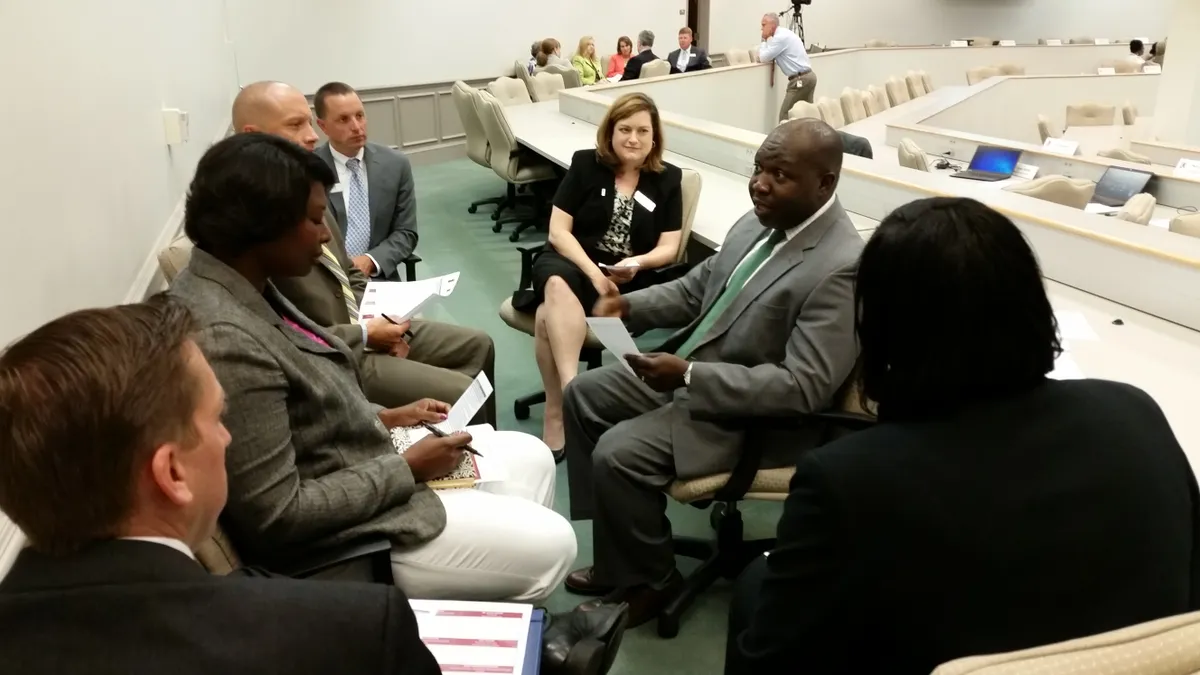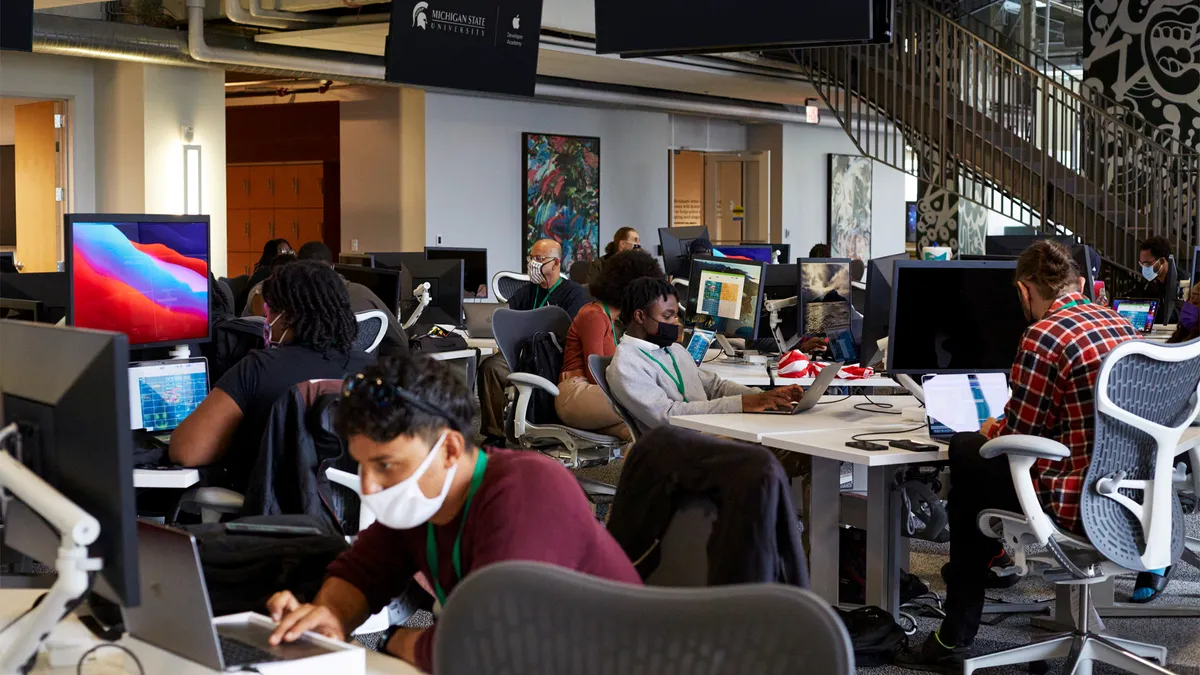While the two- or four-year college track to jobs has persisted, it may no longer be relevant for employers struggling with talent gaps.
In a challenging talent market, it's important to be flexible, prompting many to ask whether the four-year degree is necessary for certain entry-level positions. A recent poll by Adecco found 37% of employers are currently loosening their job requirements for temporary workers, and another 72% have done so in the past year.
For some companies, the answer is apprentices — recruited from local colleges.
Accenture, for example, initiated apprenticeship programs in Chicago and San Antonio to bring new hires into the fold, allowing students the opportunity to prepare for specific, high-demand jobs in the company — including work within the IT group and in roles that include cybersecurity, data analytics and cloud migration. The programs now reach 10 cities across the U.S.
The apprenticeships run three to 12 months, with apprentices working about 36 to 40 hours per week, Pallavi Verma, U.S. Midwest senior managing director and national apprenticeship lead at Accenture, told HR Dive in an email. Formal learning, on-the-job training and coaching are built into the program, and at the end of it, they have an opportunity to work full-time with the company.
The company has converted the majority of apprentices into full-time hires, Verma said — and in the process, have made in-roads in their communities and built new talent pipelines.
Sourcing talent
Accenture partners with community colleges, non-profits and tech academies to recruit apprentices. The program has been so successful for Accenture, Verma said, that this year they're adding 300 more apprentice opportunities.
"Companies are realizing that for certain jobs it is not necessary to hold a degree," Quincie Rivers, VP of workforce strategies & employment solutions at The Adecco Group, told HR Dive in an email. "Many are actively exploring ways to bridge and address the skills gap by partnering with schools or training resources that offer curriculum aligned with their key job competencies." Everything is being considered, she adds, including work-based learning programs, certified boot camps and registered apprenticeships.
More employers are interested in nurturing high school students and developing a pipeline for their future talent landscape, too. Adecco works with employers to collaborate with both community colleges and high schools. "Work-based learning programs are beneficial not only to the worker, but to the development of a long-term talent pipeline," Rivers said. "There is room for everyone to participate when addressing the overall skills gap."
An apprentice's tale
Carlos Shows is a software developer in Accenture's Detroit office. He started his apprenticeship in April 2017 and was hired full-time in October of that year.
Shows started on a four-year degree path, but determined it wasn't a match for him. After working with a utility company, he decided to get back to school in Detroit at a time when many were leaving the city, enrolling in a backend software development program with Grand Circus Coding Bootcamp. He researched top technology companies to work for and found Accenture's apprentice program.
"I was eager to use my new skills in an environment that fostered continued growth," he said. Meeting with management in the Detroit office, Shows was able not only to showcase his skills, but demonstrate his eagerness to grow the technology community for the city of Detroit.
When asked what was required of him for the program, he said: "The willingness to learn and the willingness to teach."
Reaching beyond
"Our ambitions for the program go well beyond our own business," Verma said. Aon and Accenture, both Chicago-based companies, co-founded the Chicago Apprentice Network, which convenes companies from across the Chicagoland area to help advance professional apprenticeship programs.
In less than two years, she added, nearly 25 companies have joined the Network including Walgreens, JP Morgan Chase, McDonald's and Zurich Insurance, creating nearly 430 apprenticeships in Chicago. "We've also committed to creating 1,000 apprenticeship opportunities in Chicago by the end of 2020," she said.
The employee development doesn't stop once the apprenticeship programs end, either. Shows said he has learned several new programming languages since completing the program. "It has already opened the door to places where technology and people connect in areas where the impact is global. Which has led me to viewing my career as an opportunity to leave a lasting impression on the global community," he said.
Accenture is helping other companies, including their clients, create professional apprenticeship programs based on their own best practices. In partnership with Aon, The Business Roundtable's Workforce Partnership Initiative and The Chicago Apprentice Network, they created a national apprenticeship program playbook to help employers jumpstart similar programs, incorporating apprentices into their workforces and addressing the needs of each city's evolving industries and communities.
"Companies are realizing that a work-based learning program can give them a competitive edge in the war for talent," Rivers said. Employers are interested in new methods for addressing the skills gap, which is prevalent across all collars of jobs. "When a local training or educational ecosystem is developed, whether through a partner or internally at a business site, this can both attract and retain workers," she said.
Correction: A previous version of this story misstated the cities that Accenture's apprenticeship programs were first initiated in.





















